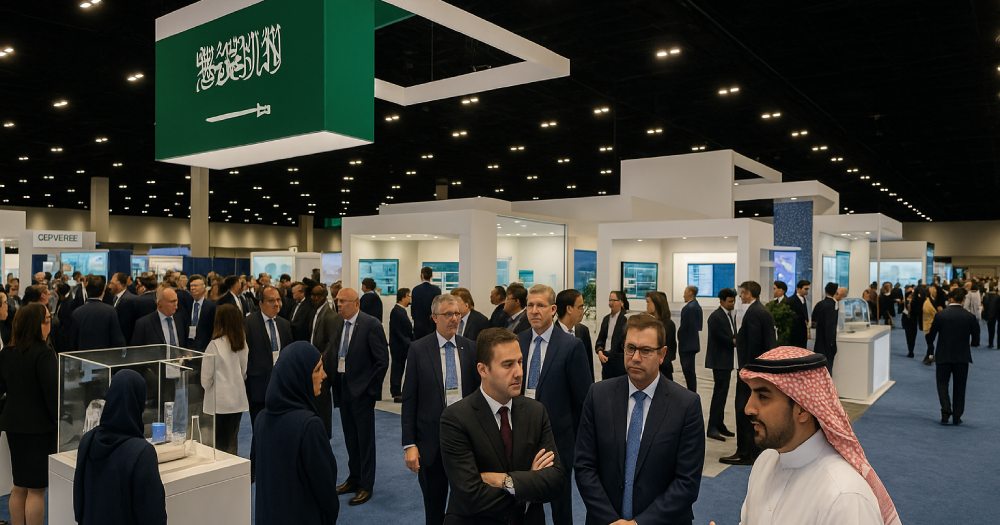Saudi Arabia unveils strategic healthcare vision and partnerships at BIO 2025

Saudi Arabia made waves this week with its first-ever national pavilion at BIO International Convention 2025 — the world's largest biotech gathering. With over 160 delegates and 25 healthcare institutions in tow, the Kingdom isn't just showing up — it's staking a claim. The real headline? A flurry of global partnerships and agreements signals a no-turning-back ambition: to become a heavyweight in biotech and life sciences.
"This is more than an opening — it's a statement of intent," declared Eng. Abdulaziz Alrumaih, Vice Minister of Health for Planning & Development. "Saudi Arabia is here not just to observe but to lead." And from the looks of it, they're off to a running start.
What happened?
The Kingdom rolled out more than a dozen high-profile Memoranda of Understanding (MoUs) with top biotech and healthcare players. These aren't just photo ops — they're strategic collaborations aimed at embedding global expertise into Saudi Arabia's fast-growing health ecosystem.
Here's a taste of what's on the table:
- The Health Holding Company shook hands with Vertex Pharmaceuticals, Amgen, and Illumina to bring precision medicine and genetic diagnostics to the region.
- King Faisal Specialist Hospital joined forces with Germfree to localize lab manufacturing.
- King Abdullah International Medical Research Center (KAIMRC) struck a deal with Illumina for cutting-edge genomics research.
- Startups got a seat at the table too. Novo Genomics signed with Tracer Biotechnologies and Avigena Biosciences to harness local data for disease prediction and diagnostics.
- KaRama linked up with DigiBiomics Co. and BioAro Inc. to move forward with exposomics-driven diagnostics.
From diagnostics to clinical trials, digital health to therapeutics, the deals touch nearly every corner of the biotech value chain — a clear play to build, not borrow, long-term capacity.
Why does it matter?
Biotech isn't just a buzzword in Saudi Arabia — it's a national strategy. These agreements don't just benefit the Kingdom; they hold global implications for innovation, scientific equity, and the democratization of health breakthroughs.
Here's why it's a big deal:
- Localization of innovation: Advanced diagnostics and therapies are being rooted in the Kingdom, not just imported.
- Clinical research at scale: New trial infrastructure means faster, regionalized drug development.
- Health equity: Genomic research based on local populations can lead to more accurate, personalized care — especially for diseases like cancer, diabetes, and heart conditions.
As one official noted, "We're investing in our future, partnering with the world's best, and creating a biotech ecosystem where collaboration turns into innovation, and innovation into impact."
The context
Saudi Arabia's play in biotech isn't sudden. It's part of a broader pivot, steered by the National Biotechnology Strategy and championed by the Crown Prince himself. The goal? To evolve from a regional healthcare provider into a global force in life sciences — from "discovery to delivery."
This shift is happening alongside huge investments in infrastructure, regulatory reform, and workforce development. It's a mix of ambition and realism. The Kingdom knows it can't go it alone — hence the global partnerships. But it's also not content being a customer. It wants to be a creator.
And BIO 2025? It's more than a debut — it's a declaration. Saudi Arabia isn't just entering the room. It's pulling up a chair at the table.
💡Did you know?
You can take your DHArab experience to the next level with our Premium Membership.👉 Click here to learn more
🛠️Featured tool
 Easy-Peasy
Easy-Peasy
An all-in-one AI tool offering the ability to build no-code AI Bots, create articles & social media posts, convert text into natural speech in 40+ languages, create and edit images, generate videos, and more.
👉 Click here to learn more


